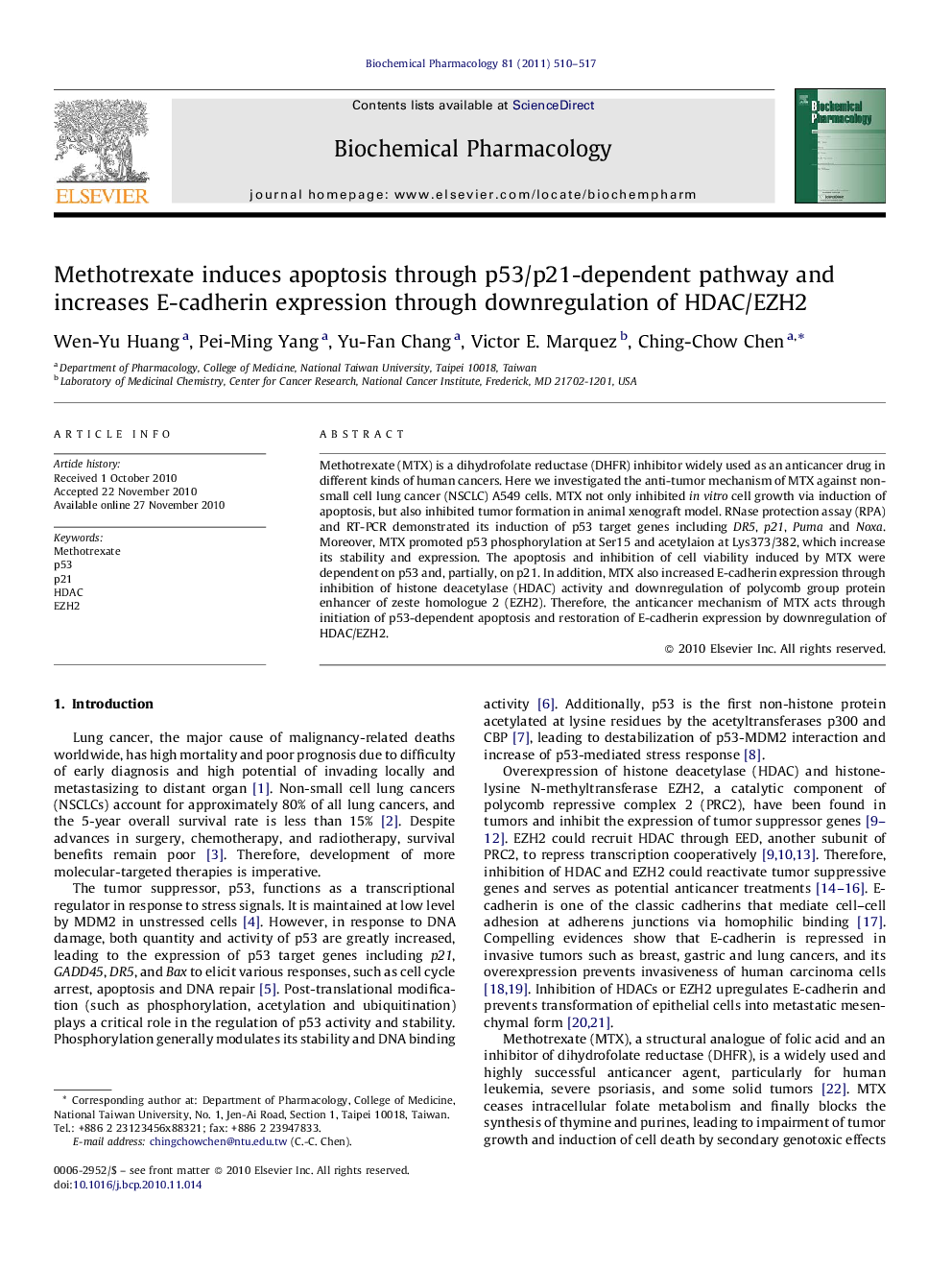| Article ID | Journal | Published Year | Pages | File Type |
|---|---|---|---|---|
| 5824140 | Biochemical Pharmacology | 2011 | 8 Pages |
Abstract
Methotrexate (MTX) is a dihydrofolate reductase (DHFR) inhibitor widely used as an anticancer drug in different kinds of human cancers. Here we investigated the anti-tumor mechanism of MTX against non-small cell lung cancer (NSCLC) A549 cells. MTX not only inhibited in vitro cell growth via induction of apoptosis, but also inhibited tumor formation in animal xenograft model. RNase protection assay (RPA) and RT-PCR demonstrated its induction of p53 target genes including DR5, p21, Puma and Noxa. Moreover, MTX promoted p53 phosphorylation at Ser15 and acetylaion at Lys373/382, which increase its stability and expression. The apoptosis and inhibition of cell viability induced by MTX were dependent on p53 and, partially, on p21. In addition, MTX also increased E-cadherin expression through inhibition of histone deacetylase (HDAC) activity and downregulation of polycomb group protein enhancer of zeste homologue 2 (EZH2). Therefore, the anticancer mechanism of MTX acts through initiation of p53-dependent apoptosis and restoration of E-cadherin expression by downregulation of HDAC/EZH2.
Keywords
Related Topics
Health Sciences
Pharmacology, Toxicology and Pharmaceutical Science
Pharmacology
Authors
Wen-Yu Huang, Pei-Ming Yang, Yu-Fan Chang, Victor E. Marquez, Ching-Chow Chen,
